It's safe to say that road trips are one of my favourite kinds of adventures, and you have as much fun travelling to your destination as you do experiencing it when you get there.
Living in Vancouver, we have so many insane places around us to explore, and there's something really cool about being able to hop in the car and drive up to places like the Rockies or Vancouver Island or the Oregon Coast. Often though, our days of travel end up being just as exciting as the incredible destinations that we visit too. Road trips offer freedom and flexibility, so whether you're venturing from home or travelling to a different destination to road trip from there, it's always such an exciting trip and you get to experience so much. You also get to take as much stuff as you want which is an added bonus!
Sometimes we do trips that are 2,000km+, sometimes they're just 200km trips. But each one always ends up being so fun and unique and you inevitably end up finding a bunch of beautiful spots along the way that you simply wouldn't discover if you flew straight there.
So, if you're planning a big road trip adventure, I wanted to share a few of my tips on how to plan the perfect road trip. These are things that have made our trips a lot easier and more organised, and they're the kind of things that you don't think of until you're on the road and you've been there and done it! I hope you find them useful and let me know what your best tips are at the bottom of the post - i'd love to know for our next trip!
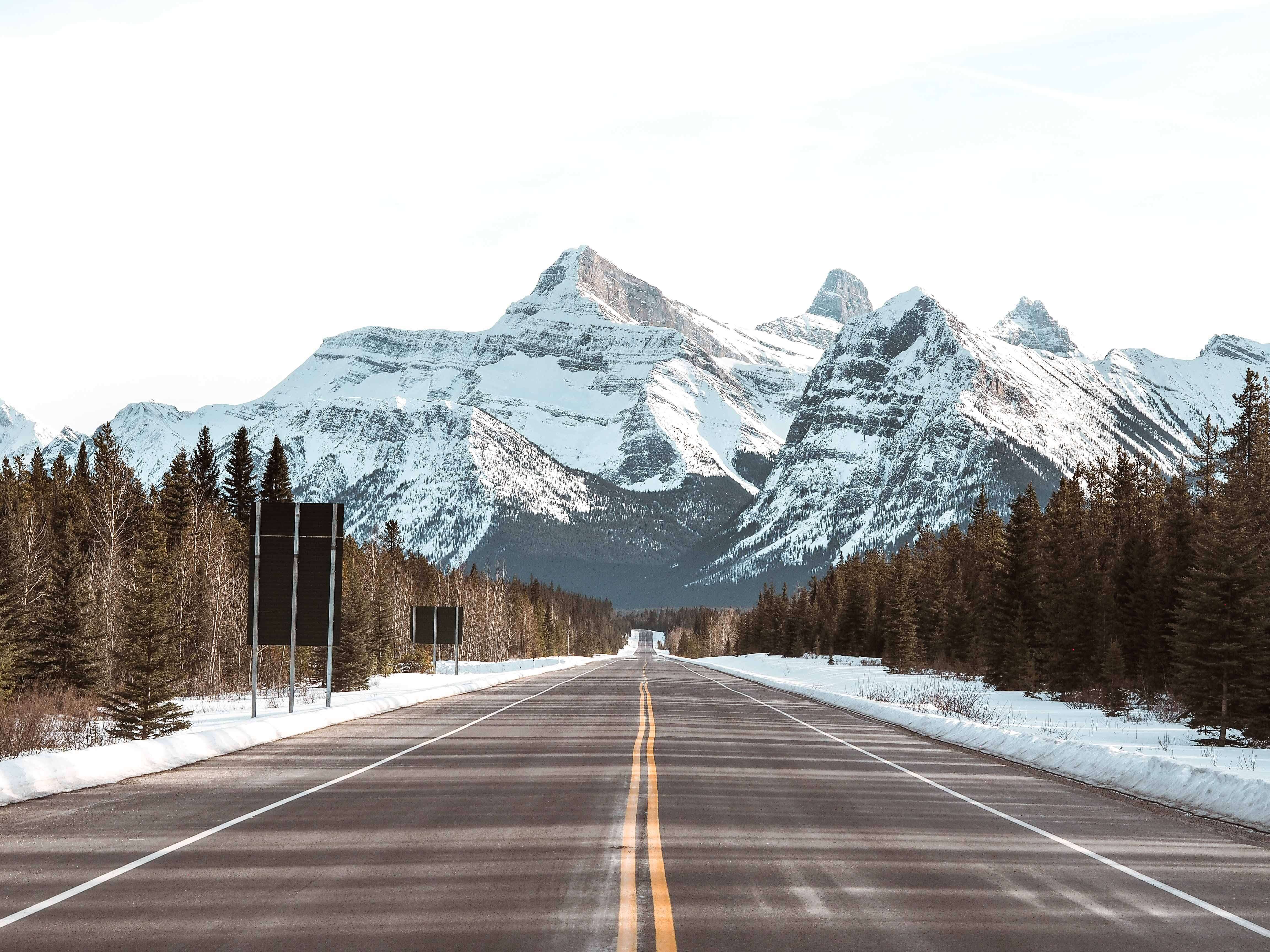
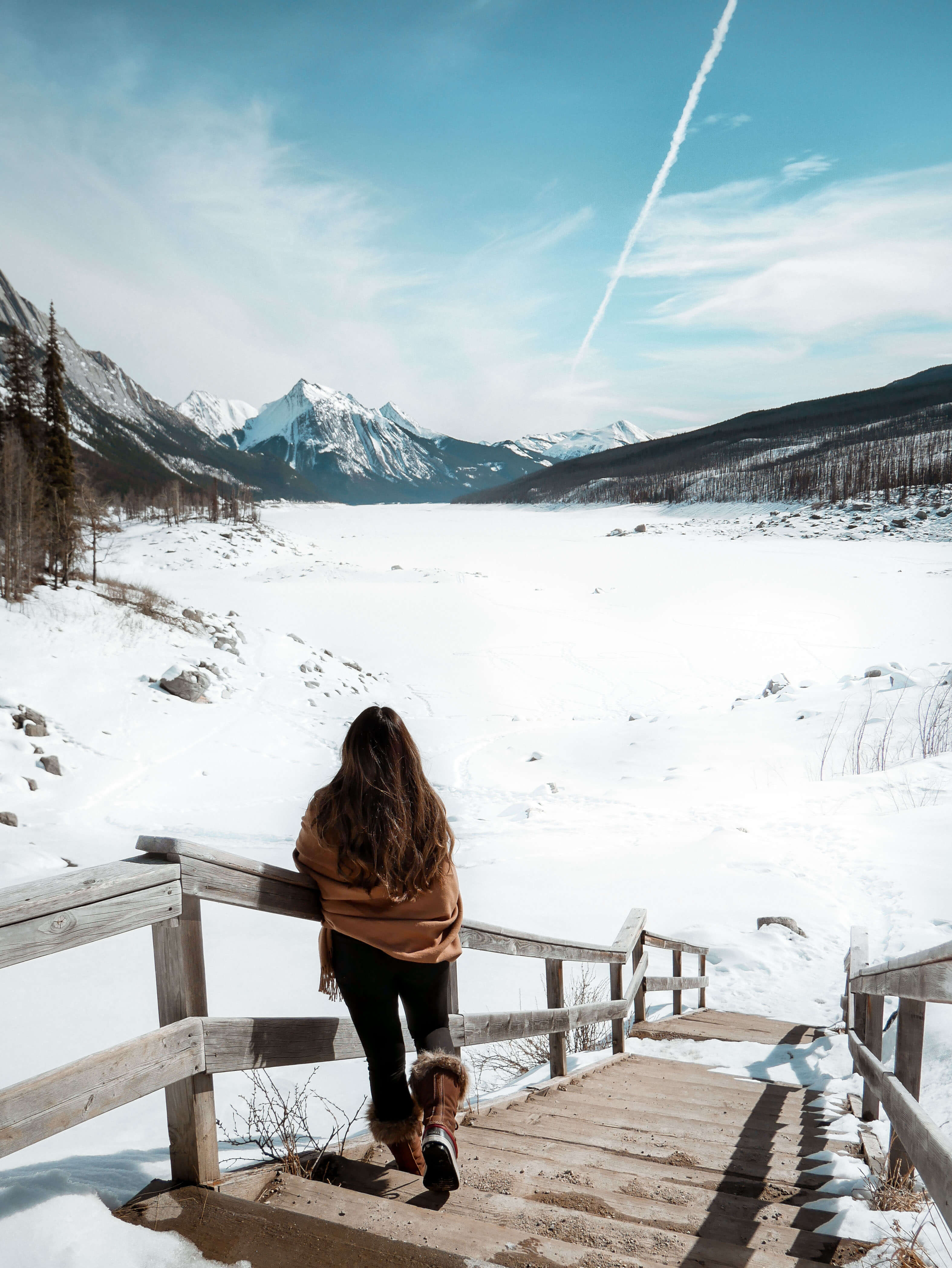
#1 - Plan Your Route + Fuel Stops
The first thing we do when we start planning our road trips is work out the route. If you're travelling to lots of different places (like we did on our Yoho, Banff + Jasper trip last year), I recommend open up Google Maps and adding all of your destinations so you can see them on a map. That will help you to see each place in relation to one another, and work out the most natural route and which place you should go to first.
You can then work out distance, how long it will take from home, and what time you should set off. Google Maps has a great feature where you can input what time you're going to leave, so it will predict delays from traffic so you can build that in. Seeing an outline of your route will also allow you to see big towns on the way that may be worth stopping at (for sights/food etc).
I also like to have a vague idea of gas stations. This is useful if you're road tripping in more remote areas, and if you're doing long stretches of highways or mountainous routes where there are no towns, it's good to know where these are so you know to fill up.
Google Maps is usually my go-to, but I will normally Google search the route too. Certain roads often close or are more exposed than others to bad weather, so it's good to have an idea of route alternatives and you usually find this info on the tourism websites/blogs etc.
I also suggest looking at the official Road Reports for the area that you're going to (in British Columbia, it's Drive BC, in Alberta it's 511 Alberta ) a few days before you travel so you're aware of any road closures or roadworks that might set you back.
#2 - Travel in style
Road trips are always that bit more fun when you've got a nice vehicle to travel in! On our most recent road trip to Jasper, Ford Canada loaned us the new 2018 Explorer which I think is the best road trip vehicle. I've driven the Explorer many times now, and it's definitely my favourite Ford model.
Not only is it beautiful and sleek to look at, it's solidly built, packed with a million safety features, it's incredibly comfortable and luxurious inside, and is ideal for both city commuting and off-road adventures. The Explorer actually has 7 seats, so it's ideal if you have a family too, as there are 2 seats right in the back that automatically fold up at the flick of a switch and there's still a good amount of boot space when they're folded up. Read more about my favourite features in-depth at the bottom of this post.
Space is essential when you're road tripping which is why I love SUVs for big trips. The Explorer had tinted windows in the back and because it's so roomy, I could easily get changed without constantly banging my head on the roof (or flashing anyone!) and it wasn't too uncomfortable. It's really handy having a big car when you're camping, as getting dressed in a small tent can be so awkward, and on freezing mornings it's nice to get changed in the warmth of your car!
To be honest, even when we're not camping i'm always doing outfit changes and the back seat ends up being my changing room, so it makes life a million times easier when you have a lot of space to work with!
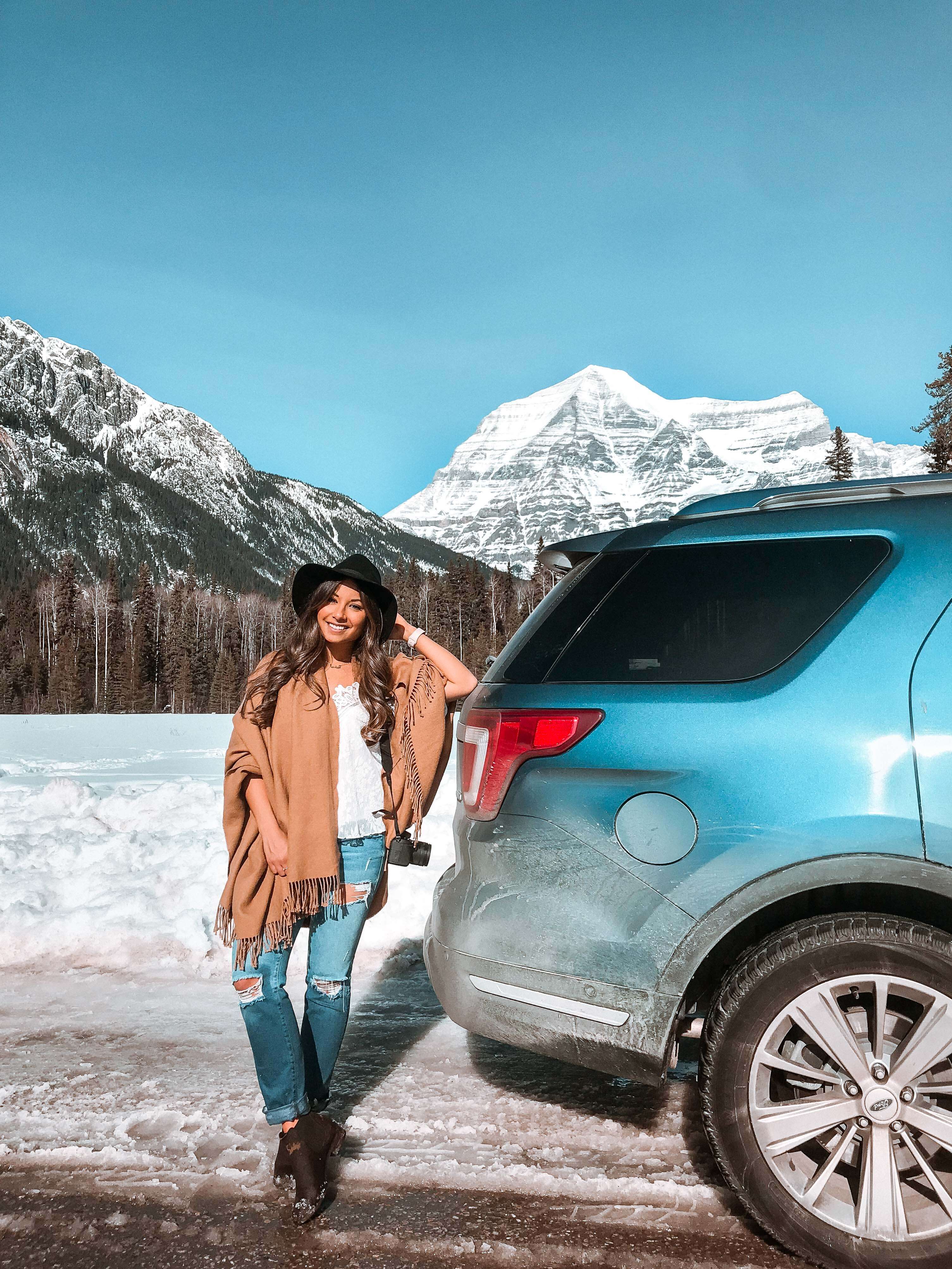
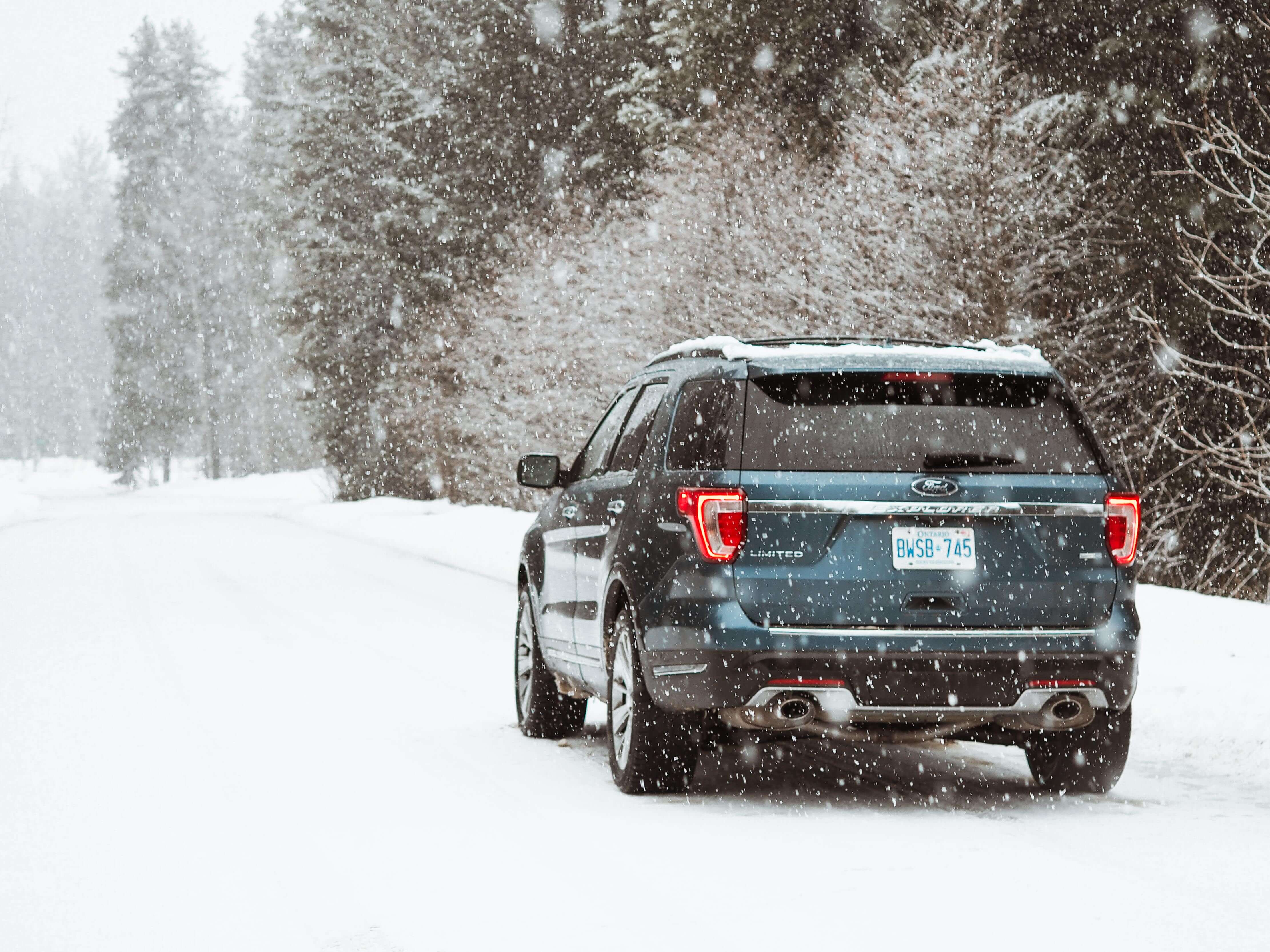
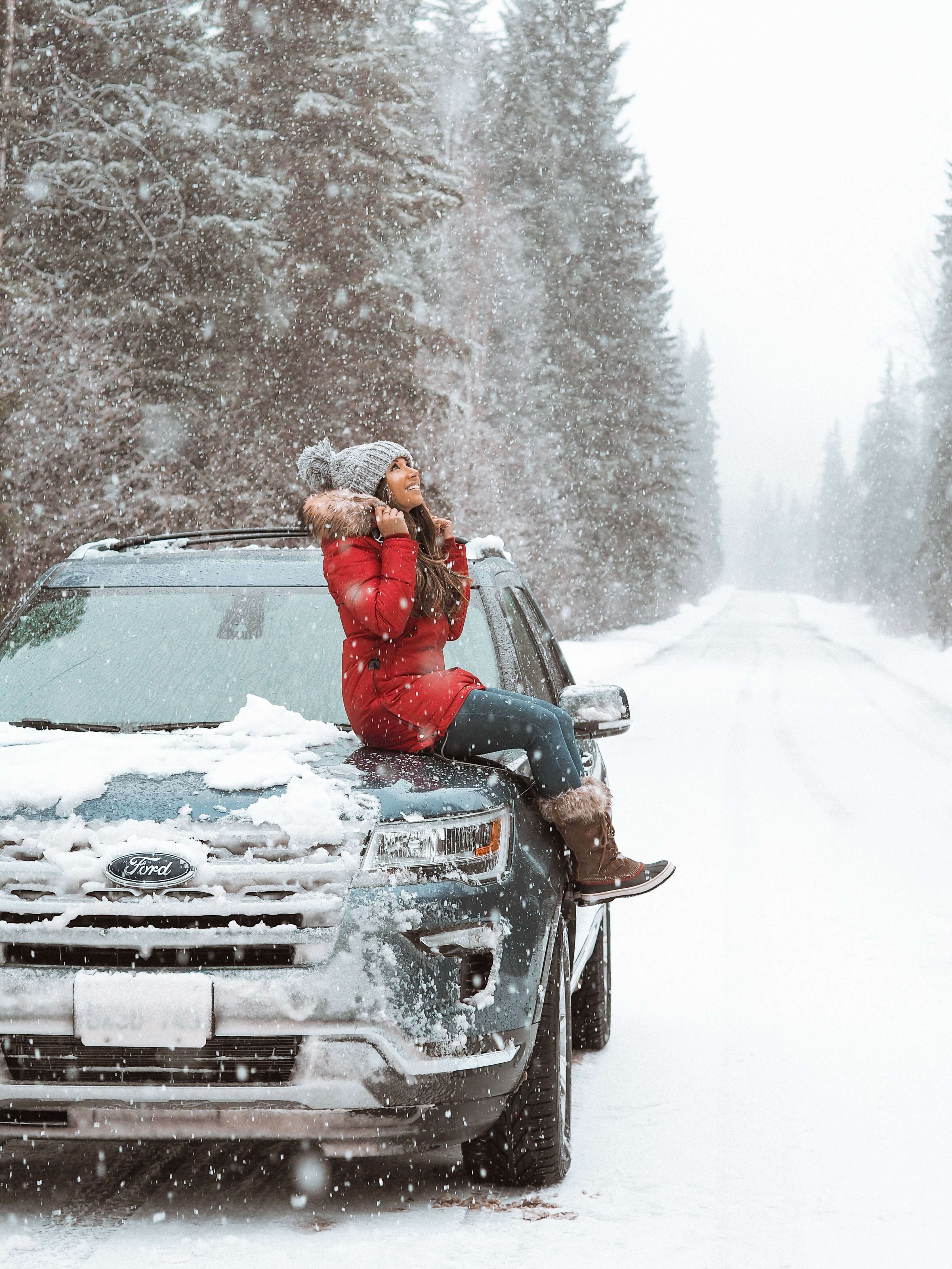
#3 - Be prepared for all conditions and scenarios
It goes without saying you need to be prepared for all conditions and scenarios. Your car ends up being your base, so you have to make sure you're constantly stocked up with water, food, and warm clothes and blankets in case you break down, get stuck on the highway for hours on end or for whatever reason have to sleep in the car.
Our tire blew out on our recent trip, and it happened in the middle of nowhere where we didn't have any phone signal and there wasn't a soul around. Had it been something we couldn't fix on the spot, we could have ended up having to sleep in the car and it was -12°C at night too so this would have been brutal if we didn't have any blankets with us.
It's also important to check your car before you leave - make sure your spare tire is in-tact, your jack kit is all there, you have your car manual, your oil is checked, your wiper fluid is topped up, etc. You need to be able to rely on your car so make sure you're prepared for all conditions and scenarios. In the Rockies, for example, it's mandatory to travel with winter tires, so check any vehicle requirements beforehand. It's also a good idea to brush up on your car knowledge. Make sure you know how to change a tire before you travel, at the very least, as you never know when something like that will happen.
As I mentioned, remember to check the Road Condition Reports for the area you're travelling to the day before + the morning you set off, just in case there are sudden road closures.
#4 - Find places to explore on the way
The thing I love most about road trips is that the adventure begins the second you leave your house. When you travel by plane, you spend the whole journey longing to be there...whereas when you road trip, there are usually fun places to stop along the way which makes the drive so exciting.
Once you've mapped out your route, you can then take a closer look and try to identify beautiful places along the way. We usually pick and research 1 or 2 places that we want to check out, and then we leave the rest up to chance. The great thing about road trips is that they allow for so much spontaneity and you can just play it by ear. Make sure you build in extra time for exploring (for example, if the route says it takes 8 hours, it'll probably take 10/11 hours if you're going to be stopping). Some places will be right by the road, others might take a bit longer to get to. But make sure you take advantage of the amazing spots and viewpoints on the way and keep your eyes peeled for road signs which will point out viewpoints and places of interest.
#5 - Snacks + playlists
No road trip is complete without great snacks and a few killer playlists! We take a variety of snacks, usually things like nut mixes, protein bars, bananas, dates, crisps, and something sugary like Haribo for when we're flagging and we need a boost. I try to create at least 3 playlists - usually an upbeat one, old school one, an acoustic playlist and something else, so we have variety. When you're driving for hours and hours, your mood will change a lot (i.e. there'll be times when you're so excited and also times when you're exhausted) so it's nice to have a mix of music as well as snacks to keep you going!
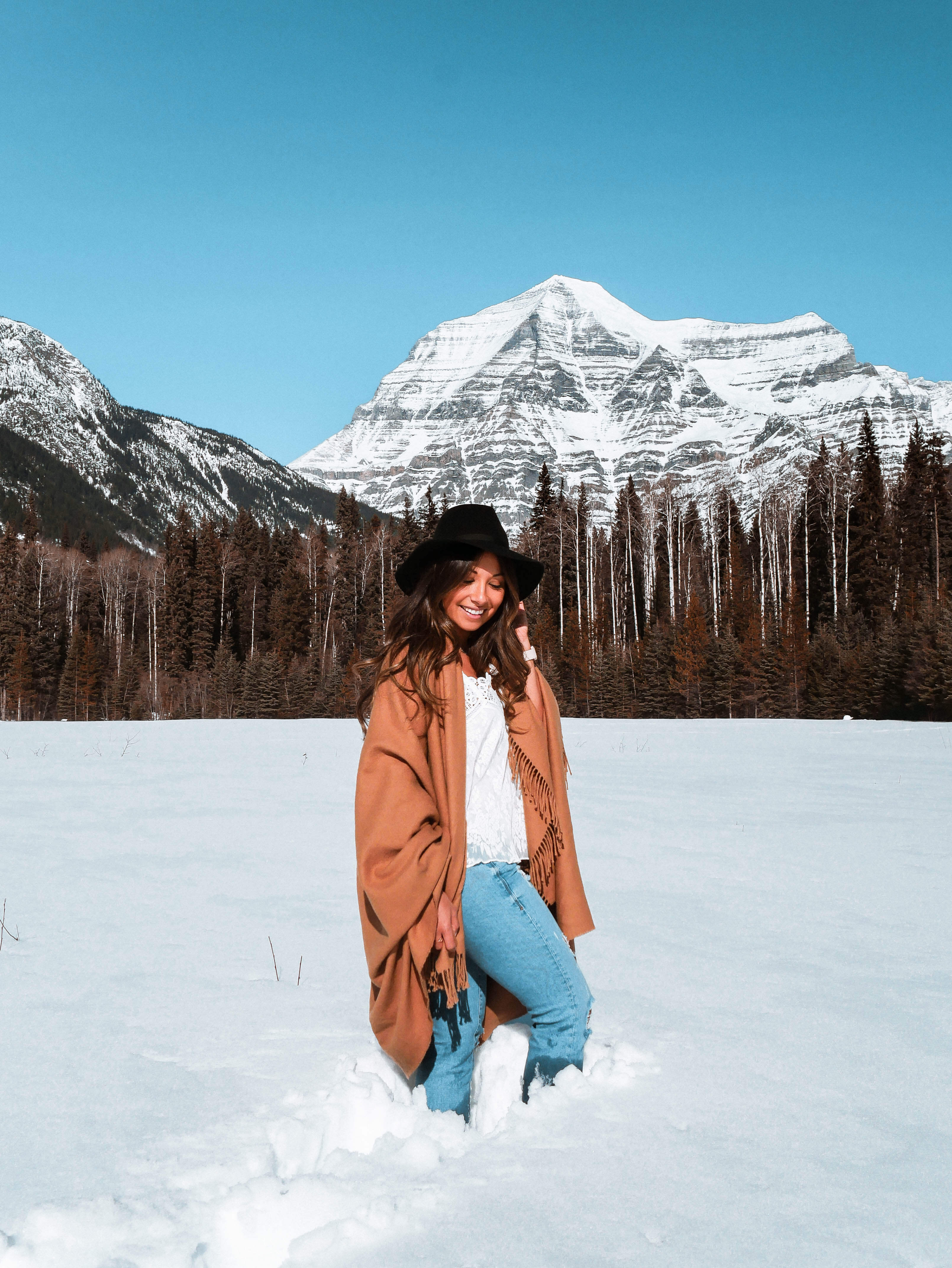
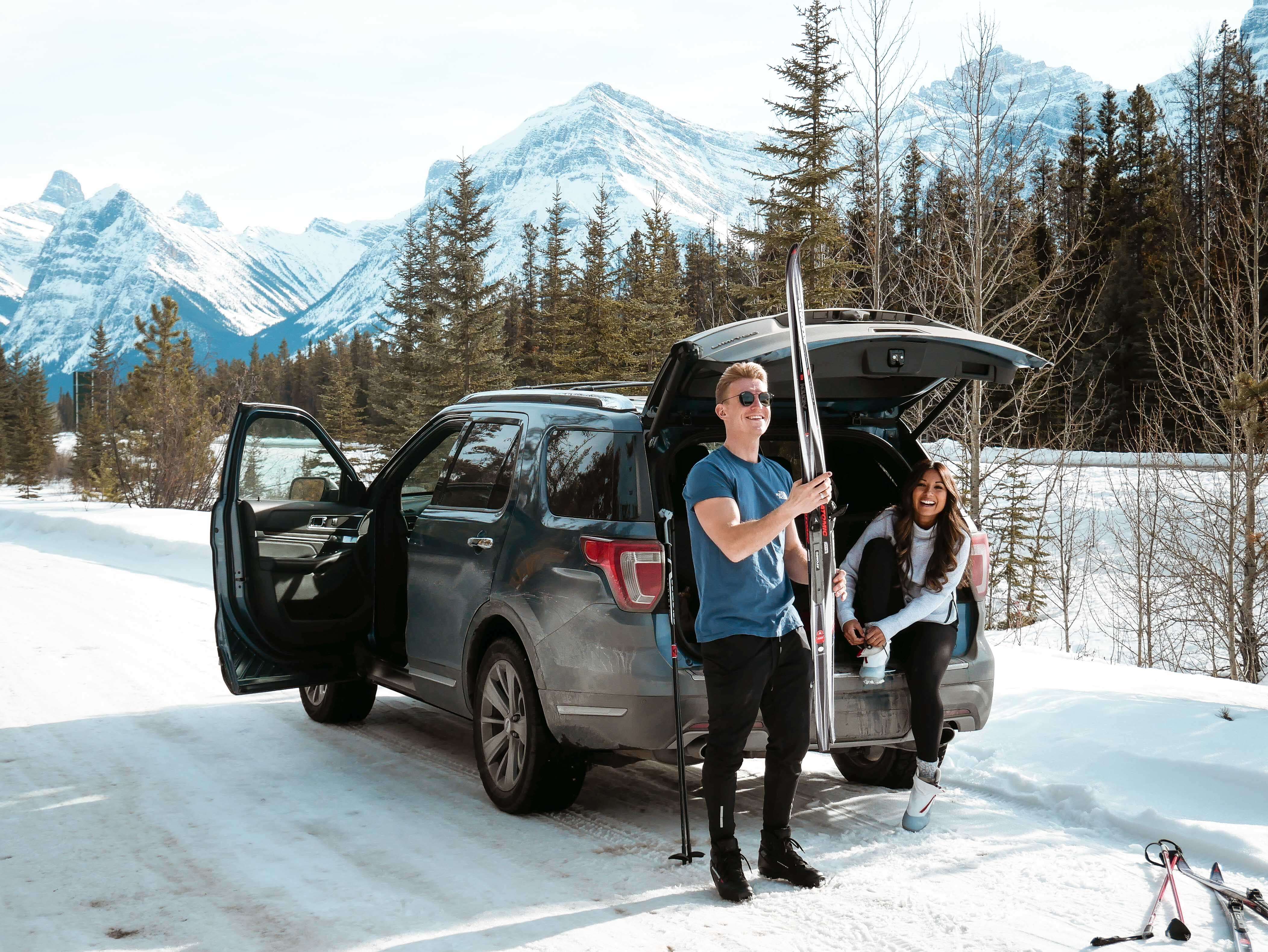
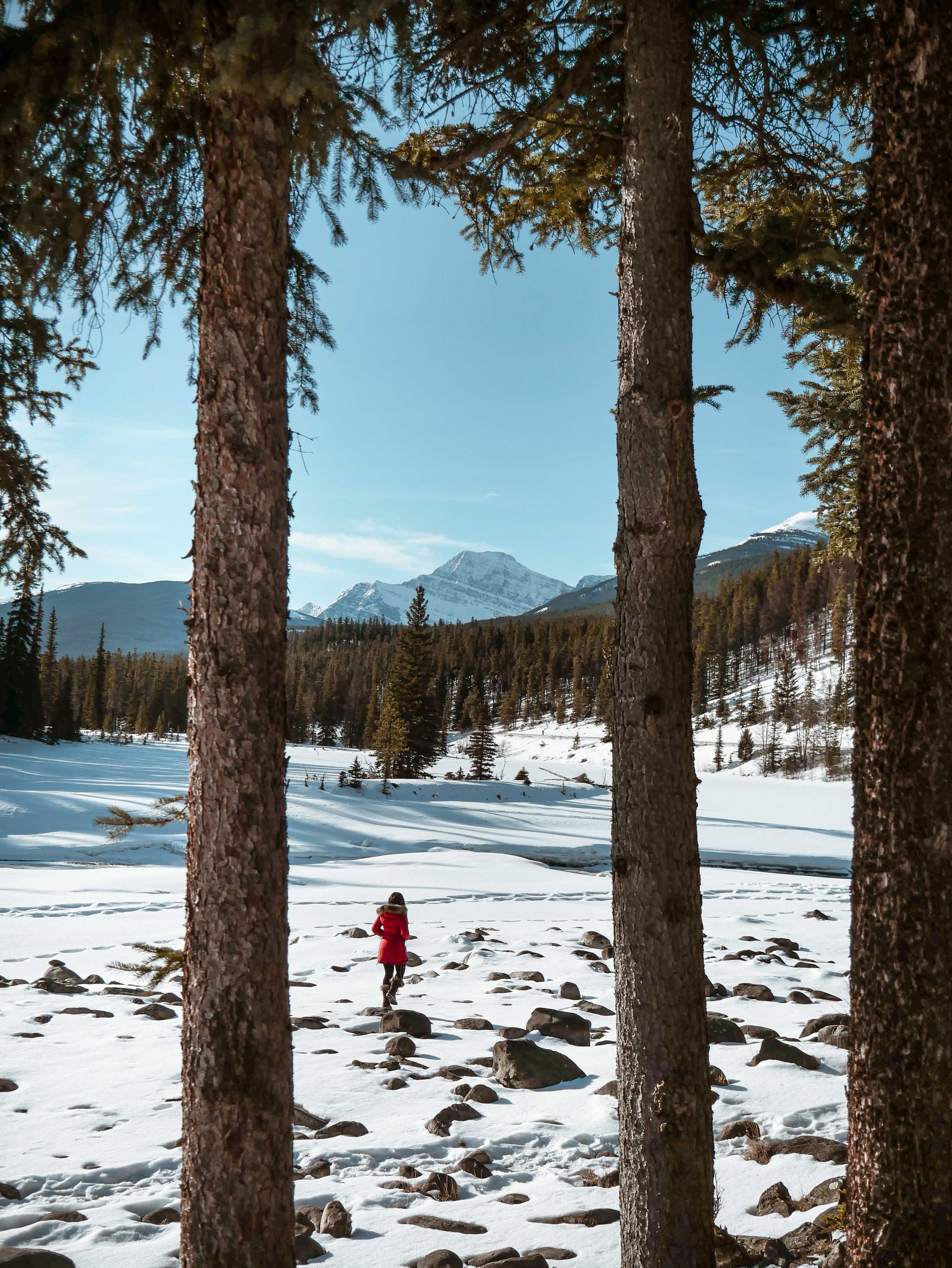
#6 - Keep the car tidy
It's amazing how messy your car can get when you're road tripping. Get into the habit of keeping the car tidy so that everything stays organised and you don't end up losing your essentials. We always take a couple of spare plastic bags for our rubbish, and try to make sure everything has a "home". For example, phone chargers will live in the glovebox, water will live in the sides, camera lenses will live in the central compartment and coats will hang on the back of the seats. It's so easy to lose stuff when you're constantly in and out of the car (especially things like camera lens caps) so keeping it tidy makes life a lot easier. I also recommend keeping the boot nice and organised rather than just throwing your bags in the car, so you know where everything is when you need it.
#7 - Carry more water than you need
I highly recommend buying a big 5-gallon water bottle to keep in the boot. Buy one with a tap attached to the side, so you can fill up your reusable bottles whenever you need it and it's easy to pour. This is so useful to have when you're camping, so you're not running back and forth to the water taps, and it means you don't have to remember to fill up your bottles at the hotel room/campsite.
You also save a lot of money as you're not constantly buying small bottles of water (and you're not using as much plastic) and you never have to worry about running out of water. The big bottles are cheap to buy but really useful to keep with you.
#8 - Keep track of food spend
Road trips are often a cheaper way to travel than flying, but you can easily end up spending a huge amount of money on food. Drive-through and coffee stops are all small transactions, but when you're doing that every day as well as lunches and meals out at night, it all adds up. Try to allocate a daily budget for food spend, and be smart and take some essentials with you.
When you're driving for hours it's easy to get bored, and when you get bored you usually eat, so it's always a good idea to have food with you in the car to limit how much you're stopping and spending. We always take sandwiches/quinoa/salads for Day 1 of the trip, and stock up on snack bars for in-between meals. We usually keep a loaf of bread in the car, some fruit, some boiled eggs, a jar of Nutella (for those days when you just need a Nutella sandwich), and take some sliced meat or cans of tuna so we can easily make up a quick sandwich when we're in remote places. We usually have a small cool bag to keep food in and if you have a fridge in your hotel you can keep any perishables in there overnight.
#9 - Be flexible!
It's tempting to plan your road trip to the hour, but the best thing about trips like that is literally anything can happen! You might pass the most incredible secluded beach and end up wanting to spend half a day there, you might hear about a hiking trail from fellow travellers and decide to do that, and equally, roads might be closed and you might not be able to do the things you wanted. The important thing is to keep plans loose, go with the flow, try not to stress about things like traffic jams and unexpected burst tires and make the most of your amazing road trip adventure!
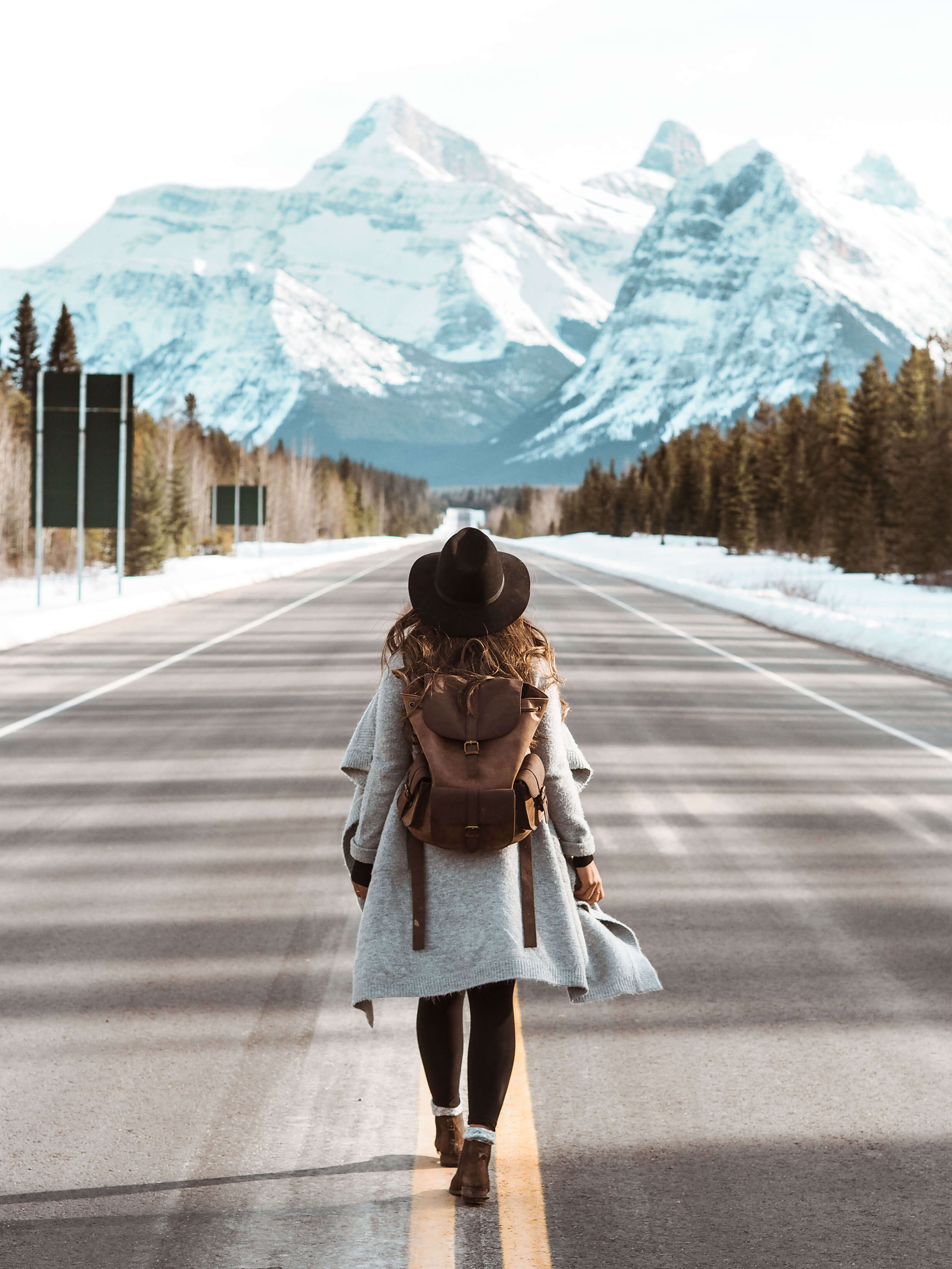
What are your best tips to plan the perfect road trip + things you always take with you? Leave me a comment below!

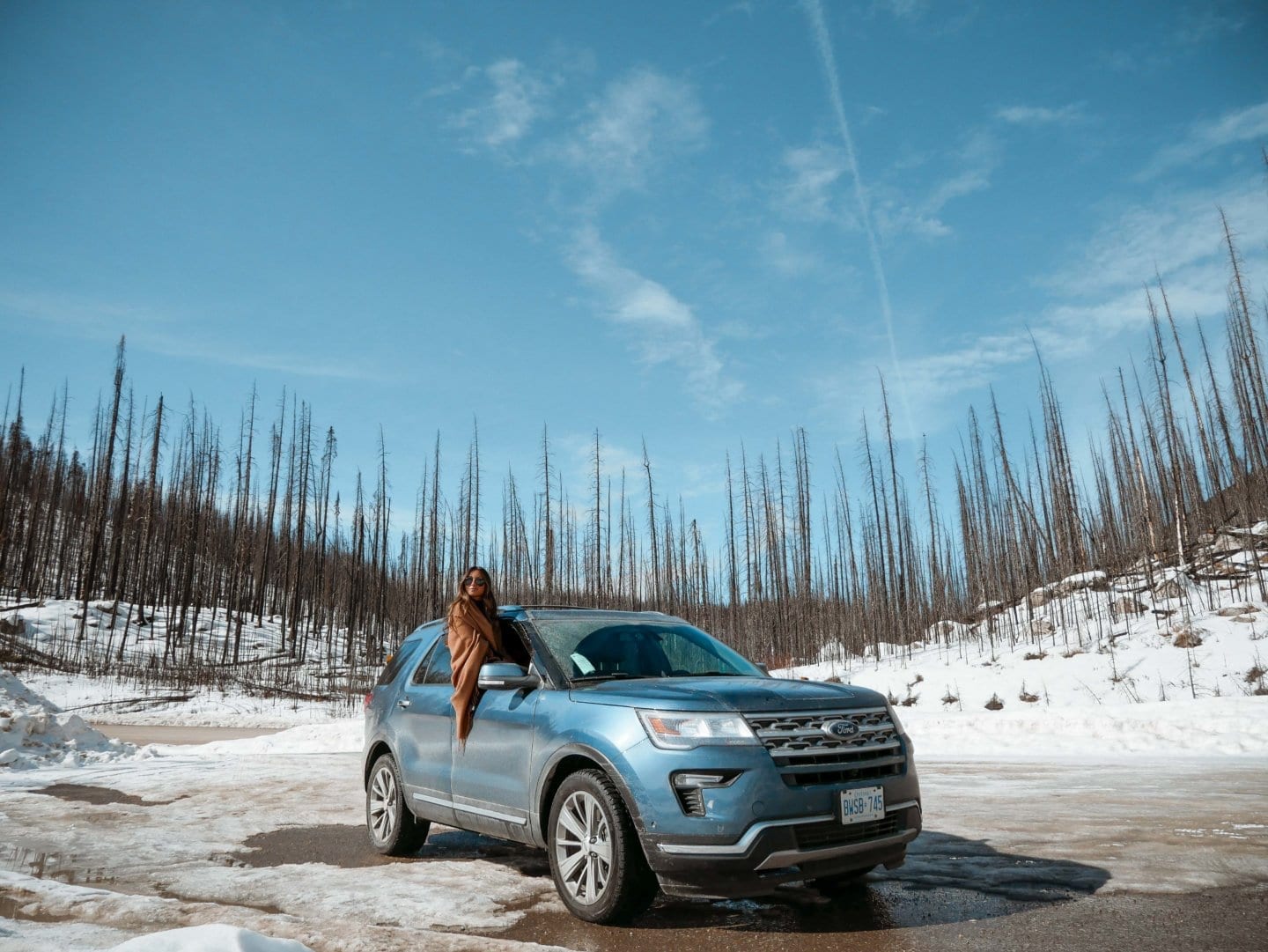
7 Comments
Hi! Where is your red coat from?
Hey Alicia! Great tips. I will start keeping track of my food budget when on a road trip. I know I spend a lot on food and coffee during road trips. I haven’t realized this. Thank you for sharing.
Author
Thank you so much! Yeah the food and coffee breaks soon add up!! Glad you found it useful 🙂
Thanks for sharing so much information. Ideas like these are so useful for a travel freak like me! Looking forward to going on a road trip real soon! 🙂
Author
Thanks so much Daniel, glad you enjoyed the post. Enjoy your next road trip!! 🙂
Loved this post Alicia – super useful for road trip planning!! I think if you put enough effort into planning you can really make what should be quite arduous (driving for hours on end) , an adventure in itself!
I’m with you on all of these. Road trips are my favourite kind of travel – I have never really been interested in cruises or organised holidays, I like to take things at my own pace and planning a road trip is half the fun! I’m not quite sure why anyone would want to miss out on that! We’re currently planning a week-long road trip to south Germany for after my masters is finished and for our birthday celebrations and I’m getting so into it.
I think being aware of alternative routes is really important, as we found out on our last trip to Canada when a road was shut and we had a mini panicked “wth do we do, we need to be in Vancouver to catch a ferry tomorrow morning.” It turned out fine in the end, but resulted in a 13 hour drive instead of an 8 hour drive.